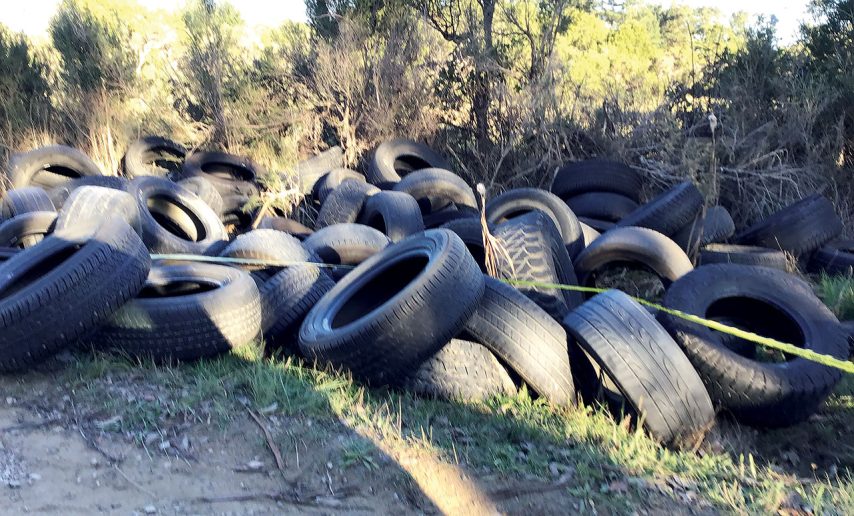MORNINGTON Peninsula Shire officers have been “working closely” with police and the Environment Protection Agency to “combat” the illegal dumping of car tyres.
The mayor Cr Steve Holland said a large numbers of tyres had been dumped “at various spots” around the peninsula.
“The investigation requires extensive intelligence gathering and a strategic approach with regard to removing the dumped tyres,” Holland said.
“Illegally dumping waste is a serious offence and a breach of the Environmental Protection Act.”
Holland said fines of more than $9000 could apply as well as a conviction if offenders were caught and prosecuted in court.
He said anyone having any information that may help identify illegal tyre dumpers should contact the shire’s litter prevention team.
Holland’s comments were made after the shire was asked why it had taken more than six weeks to remove five lots of tyres dumped near Devilbend.
The response coincided with an announcement by the EPA that during May and June it would be inspecting businesses suspected of illegally transporting or storing waste tyres.
It said the businesses being targeted were identified through the EPA Waste Tracker system as being “potentially non-compliant with their tracking obligations”.
“In Victoria, waste tyres are classified as a reportable priority waste and must be tracked by the EPA Waste Tracker system when transported from one site to another,” Rachel Gualano, EPA metropolitan Melbourne regional director said.
“EPA Waste Tracker tracks waste through every step of its journey; from the generator, to the transporter through to the end user or disposal point. If there’s a gap in the Waste Tracker trail, EPA can see it and use that intel to pinpoint where along that journey the trail breaks. Which is how we have a good understanding of which businesses to prioritise in the upcoming waste tyre inspection program,” she said.
Gualano said Waste Tracker was an important tool in preventing “hidden waste crime”.
Degrading tyres leached contaminants to the environment and became havens to weeds and pests. Tyre fires were particularly difficult because of the harmful smoke they emitted and how hard they were to extinguish.
“EPA has cleaned up several tyre stockpiles over the years, but it’s at a cost to the community when it should be the responsibility of the person or business that took in the tyres in the first place,” Gualano said.
“Our inspection campaign will enforce the use of Waste Tracker as a compulsory system for the transport of reportable priority waste. If we find that businesses aren’t compliant, we will take further regulatory action.”




